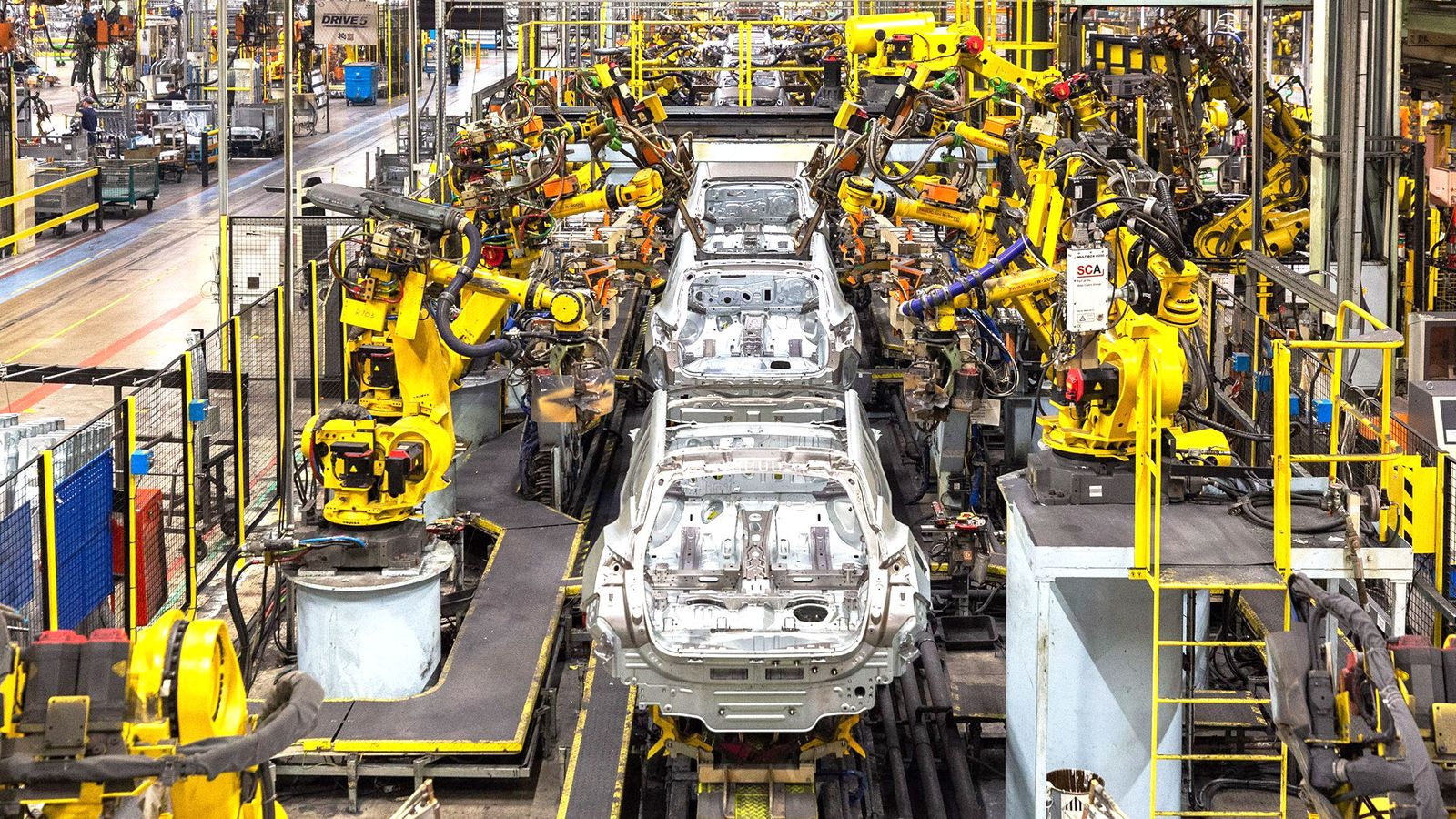Nissan to build three new electric car models in Sunderland

Nissan has announced plans to build new electric versions of its popular Juke and Qashqai models at its Sunderland plant, supporting thousands of jobs.
All models made at the site will be entirely electric cars and a battery making plant, a so-called gigafactory, will also be built as part of an overall £3bn investment in the transition away from combustion engines.
Of that, £1.12bn in new funding will be delivered by Nissan initially, with funding growing to £2bn to include develop the gigafactory.
It builds on the £1bn electric vehicle hub announced by Nissan in 2021.
The Japanese carmaker also announced a new version of the Nissan Leaf electric vehicle (EV) – which is already produced at the site.
Nissan employs 7,000 people directly in the UK and supports another 30,000 jobs in its supply chain.
Sky’s City editor Mark Kleinman had reported the announcement on Thursday, adding the investment would involve a significant government funding guarantee. It was unclear whether any taxpayer cash would be provided up front, he said
Prime Minister Rishi Sunak said: “Nissan’s investment is a massive vote of confidence in the UK’s automotive industry, which already contributes a massive £71 billion a year to our economy.
“This venture will no doubt secure Sunderland’s future as the UK’s Silicon Valley for electric vehicle innovation and manufacturing.”
Advertisement
No further detail on where the gigafactory will be built was given on Friday morning, or information on who would build it.
The site already has a huge gigafactory being built by AESC Envision, a Chinese company which makes batteries for the automotive industry and in which Nissan owns 20%.
Nissan has been manufacturing in Sunderland since 1986 and has grown to be one of Europe’s largest car plants.
Read more: Nissan commits to 2030 electric car deadline despite delay to UK petrol-diesel ban
Nissan has committed itself to the sale of only electric cars across Europe from 2030.
Mr Sunak recently pushed out the UK’s target for banning the sale of new traditional petrol and diesel cars from 2030 to 2035, attracting sharp criticism from the car making industry.